
The Twelfth Amendment to the United States Constitution provides the procedure for electing the president and vice president. It replaced the procedure in Article II, Section 1, Clause 3, under which the Electoral College originally functioned. The amendment was proposed by Congress on December 9, 1803, and was ratified by the requisite three-fourths of state legislatures on June 15, 1804. The new rules took effect for the 1804 presidential election and have governed all subsequent presidential elections.

The 1876 United States presidential election was the 23rd quadrennial presidential election, held on Tuesday, November 7, 1876. Incumbent Republican president Ulysses S. Grant declined to run for a third term, so the party chose Rutherford B. Hayes, the governor of Ohio, as its nominee. The Democratic Party nominated New York governor Samuel J. Tilden as their nominee. It was one of the most contentious presidential elections in American history. Its resolution involved negotiations between the Republicans and Democrats, resulting in the Compromise of 1877, and on March 2, 1877, the counting of electoral votes by the House and Senate occurred, confirming Hayes as President. It was the second of five U.S. presidential elections in which the winner did not win a plurality of the national popular vote. This is the first time it happened since 1824.

The Ohio Democratic Party (ODP) is the affiliate of the Democratic Party in the U.S. state of Ohio. Summit County Council President Elizabeth Walters has been the party's chairwoman since January 2021.
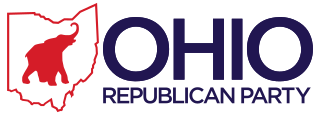
The Ohio Republican Party is the Ohio affiliate of the Republican Party. It was founded in Columbus, Ohio, in 1854. It is currently the state's favored party, controlling the majority of Ohio's U.S. House seats, one of its two U.S. Senate seats, the governorship, and has supermajorities in both houses of the state legislature.

John Armor Bingham was an American politician who served as a Republican representative from Ohio and as the United States ambassador to Japan. In his time as a congressman, Bingham served as both assistant Judge Advocate General in the trial of the Abraham Lincoln assassination and a House manager (prosecutor) in the impeachment trial of U.S. President Andrew Johnson. He was also the principal framer of the Fourteenth Amendment to the United States Constitution.

The 2004 United States presidential election in Ohio took place on November 2, 2004, and was part of the 2004 United States presidential election. Voters chose 20 representatives, or electors to the Electoral College, who voted for president and vice president.
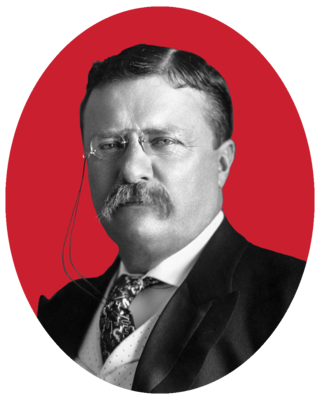
The 1904 Republican National Convention was held in the Chicago Coliseum, Chicago, Cook County, Illinois, on June 21 to June 23, 1904.
The 1868 Democratic National Convention was held at the Tammany Hall headquarters building in New York City between July 4, and July 9, 1868. The first Democratic convention after the conclusion of the American Civil War, the convention was notable for the return of Democratic Party politicians from the Southern United States.
The 1864 Democratic National Convention was held at The Amphitheatre in Chicago, Illinois.

David Tiernan Disney was a U.S. Representative from Ohio for three terms from 1849 to 1855. He also served as Speaker of both the Ohio State Senate and the Ohio House of Representatives.
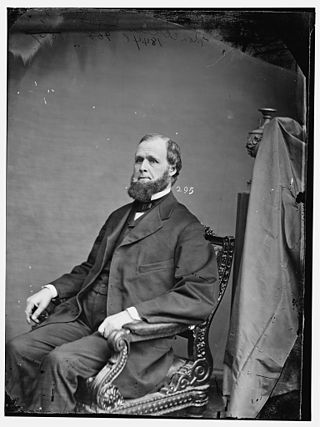
Ephraim Ralph Eckley was an American Civil War veteran and three-term U.S. Representative from Ohio, serving from 1863 to 1869.
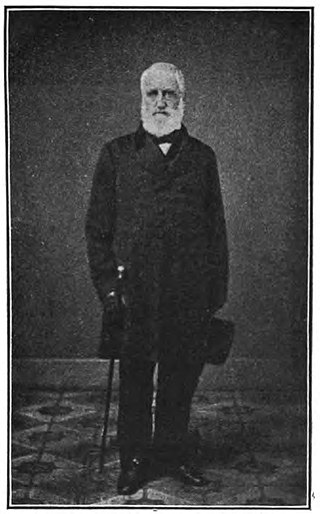
Samson Mason was a U.S. Representative from Ohio.

The 1888 Republican National Convention was a presidential nominating convention held at the Auditorium Building in Chicago, Illinois, on June 19–25, 1888. It resulted in the nomination of former Senator Benjamin Harrison of Indiana for president and Levi P. Morton of New York, a former Representative and Minister to France, for vice president. During the convention, Frederick Douglass was invited to speak and became the first African-American to have his name put forward for a presidential nomination in a major party's roll call vote; he received one vote from Kentucky on the fourth ballot.

The election of the president and the vice president of the United States is an indirect election in which citizens of the United States who are registered to vote in one of the fifty U.S. states or in Washington, D.C., cast ballots not directly for those offices, but instead for members of the Electoral College. These electors then cast direct votes, known as electoral votes, for president, and for vice president. The candidate who receives an absolute majority of electoral votes is then elected to that office. If no candidate receives an absolute majority of the votes for president, the House of Representatives elects the president; likewise if no one receives an absolute majority of the votes for vice president, then the Senate elects the vice president.
The 1876 Greenback National Convention was held in Indianapolis in the spring of 1876. The Greenback Party had been organized by agricultural interests in Indianapolis in 1874 to urge the federal government to inflate the economy through the mass issuance of paper money called greenbacks. Peter Cooper was nominated for president with 352 votes to 119 for three other contenders. The convention nominated anti-monopolist Senator Newton Booth of California for vice-president; after Booth declined to run, the national committee chose Samuel Fenton Cary as his replacement on the ticket. Cooper was 85 years old at the time of his nomination, thus the oldest person ever nominated by a political party to serve as President of the United States.
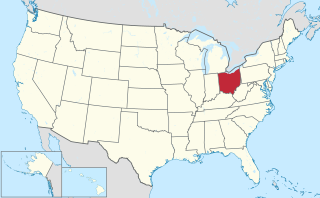
Following is a table of United States presidential elections in Ohio, ordered by year. Since its admission to statehood in 1803, Ohio has participated in every U.S. presidential election.

The 2022 United States House of Representatives elections in Ohio were held on November 8, 2022, to elect the 15 U.S. representatives from Ohio, one from each of the state's 15 congressional districts. The elections coincided with other elections to the House of Representatives, other elections to the United States Senate, and various state and local elections. Primary elections took place on May 3.

The 2022 United States Senate election in Ohio was held on November 8, 2022, to elect a member of the United States Senate to represent the State of Ohio. Republican writer and venture capitalist J. D. Vance defeated Democratic U.S. Representative Tim Ryan to succeed retiring incumbent Republican Rob Portman.

Shontel Monique Brown is an American politician who has served as the U.S. representative for Ohio's 11th congressional district since 2021. A member of the Democratic Party, Brown previously served as a member of the Cuyahoga County Council, representing the 9th district. She won her congressional seat in a special election on November 2, 2021, after Marcia Fudge resigned to become Secretary of Housing and Urban Development.